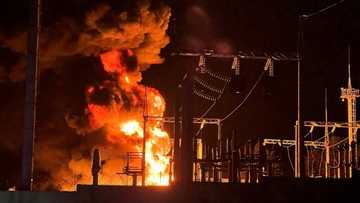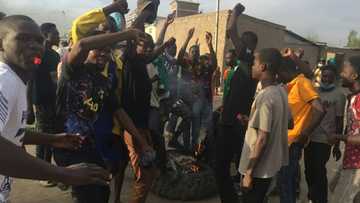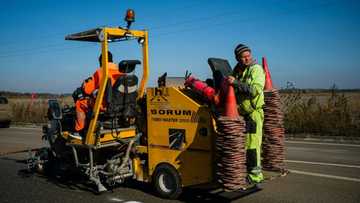Time of reckoning in Ukrainian monastery town
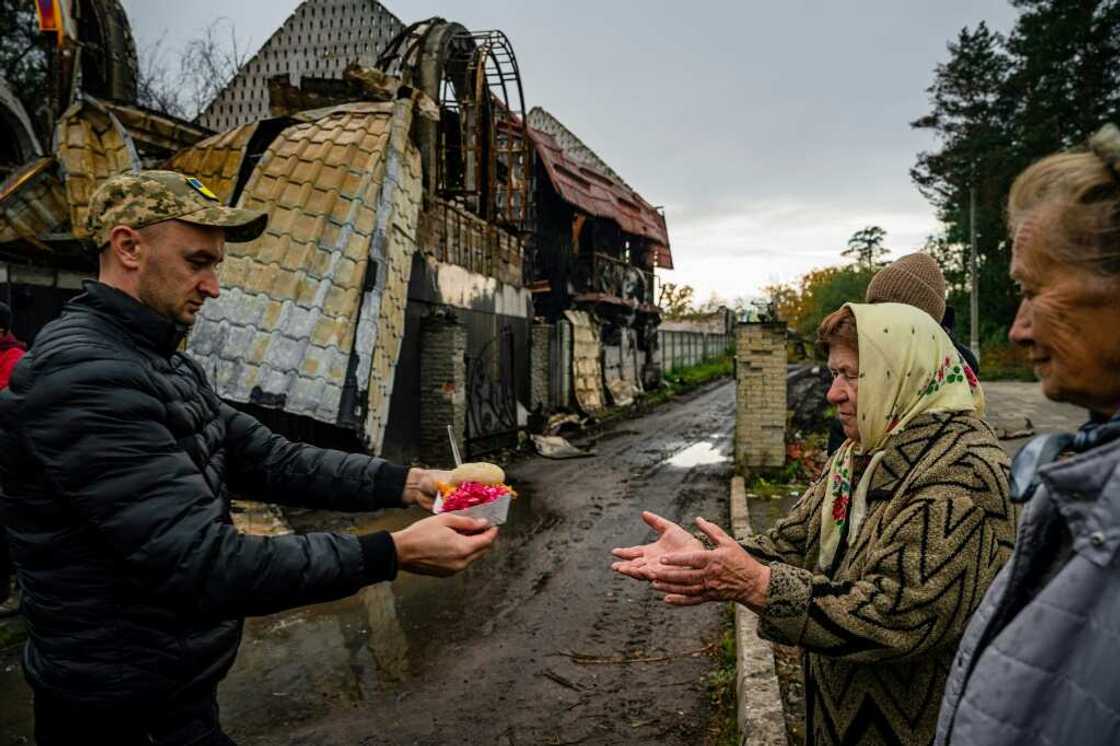
Source: AFP
PAY ATTENTION: Click “See First” under the “Following” tab to see Legit.ng News on your Facebook News Feed!
Two neighbours are desperately avoiding each other in a queue for food in the ruins of Svyatogirsk, a spa town whose monastery was recently re-captured by Ukrainian forces.
A tearful Lyudmila Orlova, 61, told AFP she was the victim of a dangerous betrayal of trust by 76-year-old Yevdokiya Yarovaya.
"Four days before the town was liberated, on September 7, she told Russian soldiers that I had a car that was used by Ukrainian troops."
"They came in the evening with their guns. They were drunk and they questioned me for half an hour. They turned over everything in the house," said Orlova, a Ukrainian-language teacher in this mostly Russian-speaking town.
Yarovaya denied the accusations, saying she had "no contact" with Russian forces and had only seen them a few times to receive aid.
"Food is more important than anything," she insisted. But she did not answer the question if this aid was conditional on collaboration.
PAY ATTENTION: Сheck out news that is picked exactly for YOU ➡️ find the “Recommended for you” block on the home page and enjoy!
"There is a lot of anger and resentment. We still haven't come to terms with what we lived through and I would like it not to happen again," said Yarovaya.
She clutched two trays of seasoned pilau rice handed out to her by volunteers helping freezing inhabitants.
'Liberators'
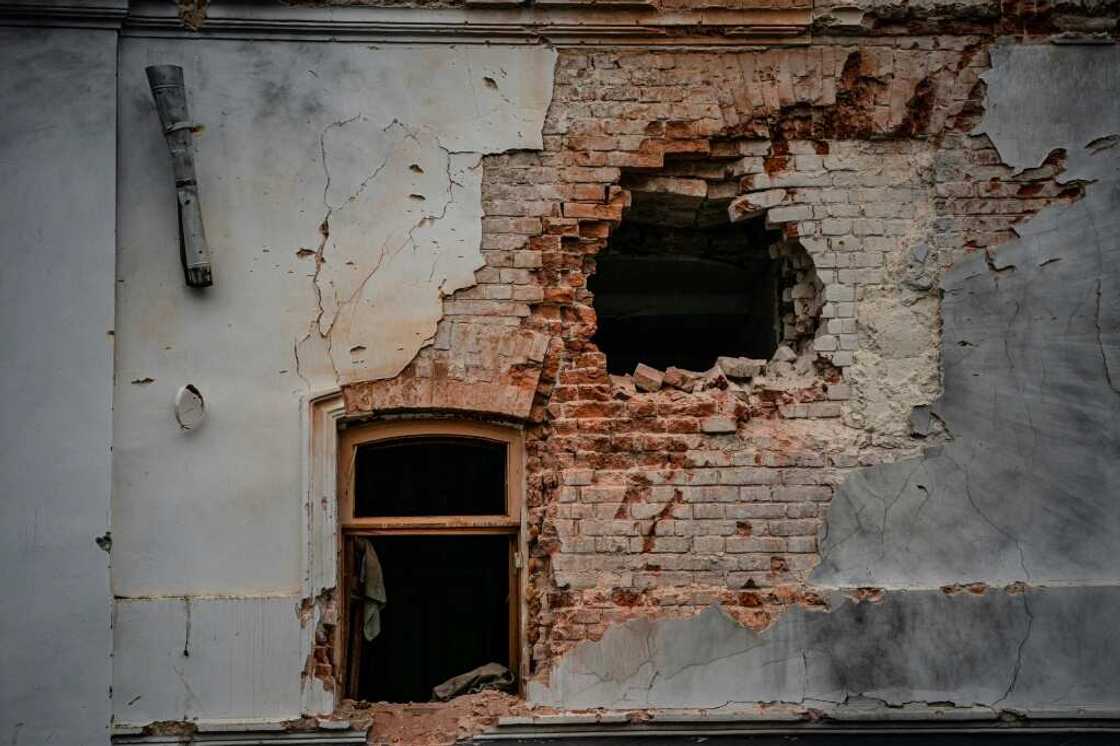
Source: AFP
When Russian troops captured the town in June, its mayor, Volodymyr Bandura, celebrated them as "liberators", holding a press conference under a Russian flag.
Bandura, a member of the pro-Russia party "For Life" elected in 2020, disappeared when Ukrainian troops took back the town in September and is now wanted for treason.
In his place the army has named Volodymyr Rybalki, who coordinated the town's civil defence force, as head of the military administration for the re-captured area.
Rybalki said he is trying above all to ensure the welfare of residents as winter approaches and has no time now for any "hunt for collaborators".
"Working out who collaborated or not is the work of the SBU (Ukrainian intelligence service) and the police. If there have been acts of treason, they will be handled according to the law," he told AFP.
Ukraine's law on treason has been amended since the Russian invasion to include a broader range of offences, including "denying that Ukraine suffered an armed aggression".
People who collaborate with an occupying force risk between 15 years in prison and a life sentence in cases where their crime led to "death or a grave consequence".
'They support Russia'
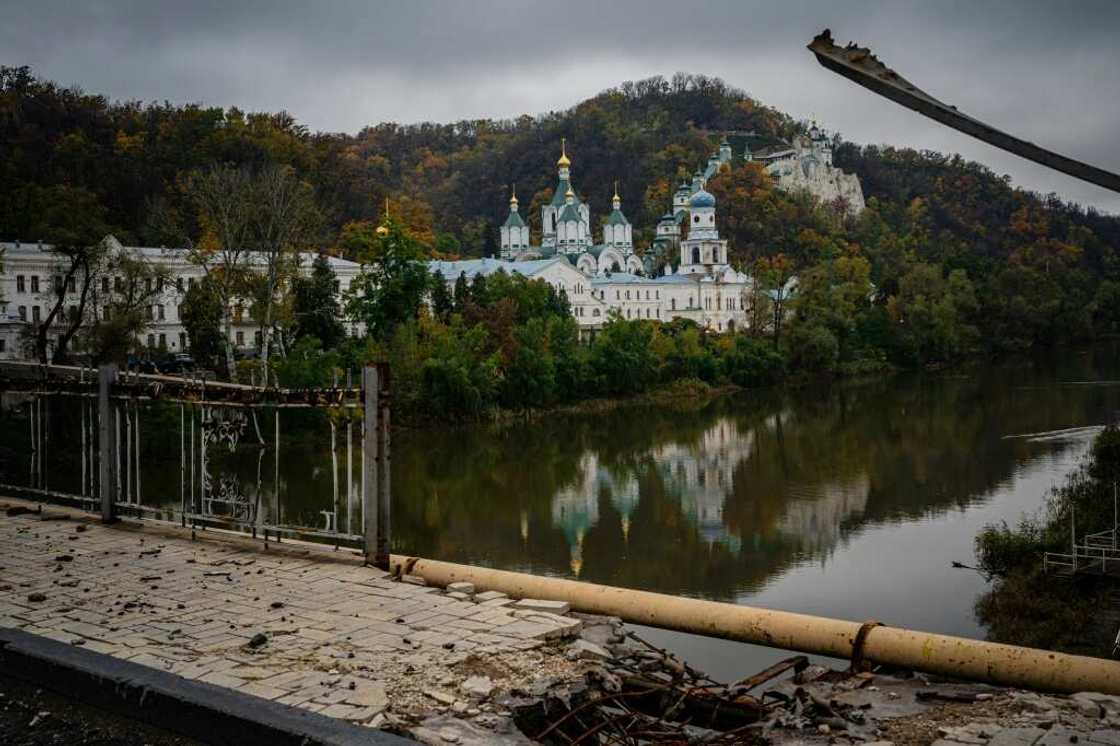
Source: AFP
In Svyatogirsk, the Holy Dormition Lavra monastery has become a focus for tensions.
Its abbot came out openly in favour of Russia-backed separatists in 2014 and Ukrainian authorities accused him of hiding fighters and weapons inside the monastery.
This time "the monastery tried to keep a position that it presented as neutral but we all know they support Russia", said Oleksiy Kashporovskyi, a Ukrainian army press officer.
The 46-year-old pointed to the green domes of the sprawling religious site on a hillside.
At the entrance to the complex stands a statue of the Virgin Mary with only one hand left. The other was torn off by an explosion.
At the height of the fighting, 400 residents of Svyatogirsk sought refuge in the monastery alongside its 200 monks.
Despite orders for evacuation as Russian forces advanced, they stayed.
"This led to a lot of questions about their loyalties," Kashporovskyi said.
In the monastery garden, Father Theophanus, 51, a former coal miner, pointed to the fresh graves of three monks killed by a mortar in May.
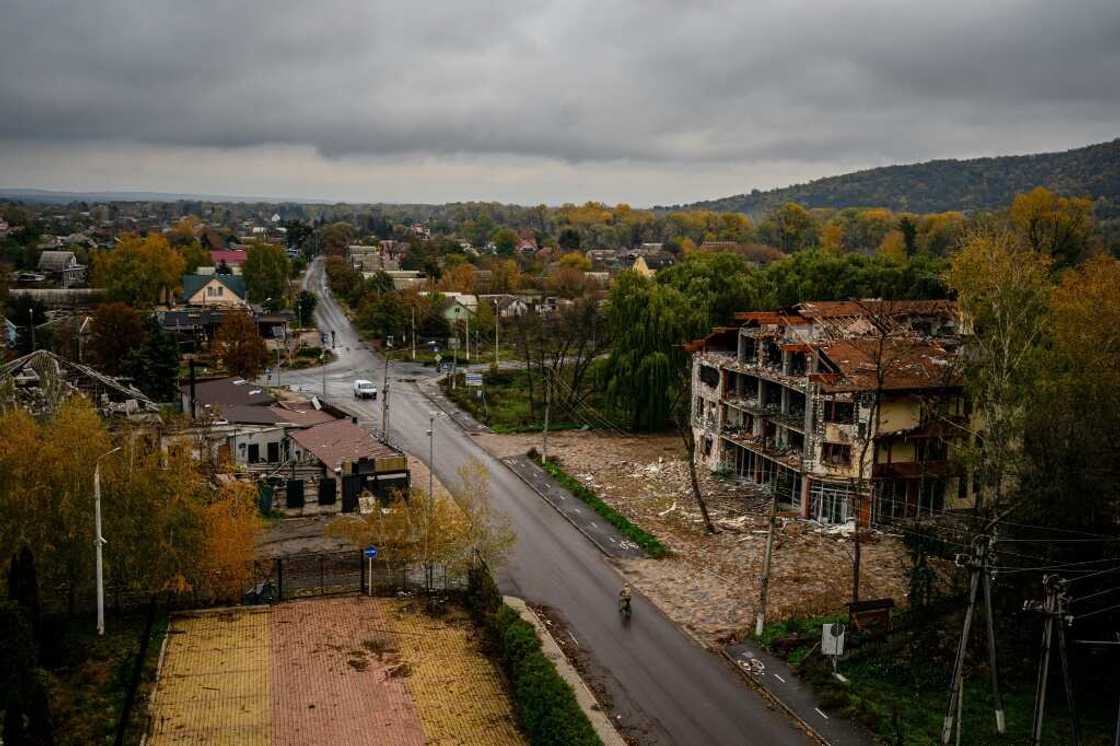
Source: AFP
He said the "hostile" perception of the monastery is linked to questions about the allegiance of the Ukrainian Orthodox Church, which formally broke ties with Moscow in May.
"We mention Patriarch Kirill of Moscow in our services but we have never hosted terrorists, separatists or weapons," he said, adding that he prayed daily "for the Ukrainian people".
Source: AFP


